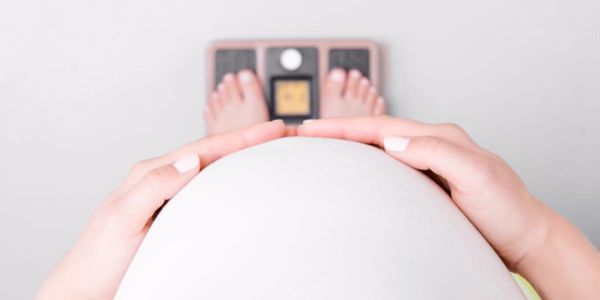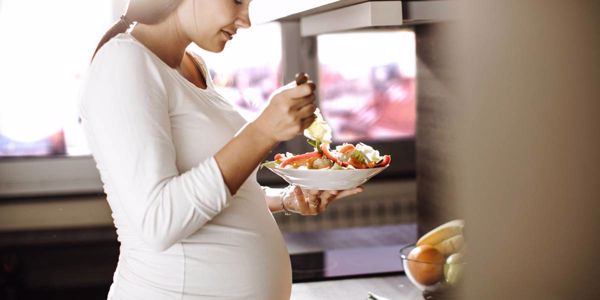Most people can get the majority of all vitamins and minerals by eating a healthy balanced diet - see my post on ‘How can I eat healthily during pregnancy?’ for more information on how to include a good range of nutrients in your diet. However there are 2 vitamin supplements you do need to take during pregnancy.
Folic Acid:
Taking folic acid is very important and has been shown to protect your baby against brain and spinal defects (neural tube defects) such as spina bifida.
It is best to start taking folic acid when you start trying for a baby or as soon as you find out you are pregnant. You will need to take 400 micrograms (mcg) of folic acid every day until the end of your first trimester (12 weeks). Some people may be required to take higher doses than this for example if there is a family history of neural tube defects, have diabetes, on certain drugs for epilepsy or have a higher BMI; your GP or midwife can advise you on this.
Some foods also contain the natural form of folic acid (folate) such as green leafy vegetables such as broccoli and spinach, fortified bread and cereals, pulses and beans. It is good to consume these foods but you will still need to take the folic acid supplement.
Vitamin D:
The sunshine vitamin AKA vitamin D is actually a hormone. We make it through our skin from sunlight. Vitamin D works with calcium to keep your bones, muscles and teeth healthy and also for your baby’s too, too little could cause rickets in your baby. Vitamin D deficiency is actually very common in the UK due to our lack of sunlight hours. Take a supplement with 10 micrograms (mcg) of vitamin D every day all through your pregnancy.
Should I avoid any supplements during pregnancy?
Yes. You need to avoid taking supplements that contain vitamin A (or retinol) when you are pregnant, high amounts which can cause birth defects. Be careful with multi-vitamins which contain high levels of vitamin A. Liver, liver products and fish liver oils can also be high in vitamin A and should be avoided.
Where can I get vitamins from?
- Your GP (pregnant women qualify for free prescriptions)
- Pharmacy or supermarket for over the counter supplements
- If you're on income-related benefits, or under 18, you may be entitled to free vitamins via the Healthy Start scheme or speak with your midwife.
In summary
- 400mcg folic acid during the first 12 weeks of pregnancy.
- 10mcg of vitamin D during all of pregnancy.
- Avoid supplements containing vitamin A and liver/liver products & fish oils.
If you are vegan/vegetarian there are other considerations you need to think about. See my post on ‘Eating during pregnancy for vegans’.
References:
National Health Service (NHS) [Internet]. Burnley, UK: Department of Health. Available at https://www.nhs.uk/start4life/pregnancy/vitamins-and-supplements-pregnancy/. Accessed July 2020
B Thomas, J Bishop. Manual of Dietetic Practice (2011) 4th Edition. Blackwell publishing. Chapter 3.1, Pregnancy
BDA (2019) Pregnancy & Diet. British Dietetic Association Food Fact sheet. Available at https://www.bda.uk.com/resource/pregnancy-diet.html. Accessed July 2020







